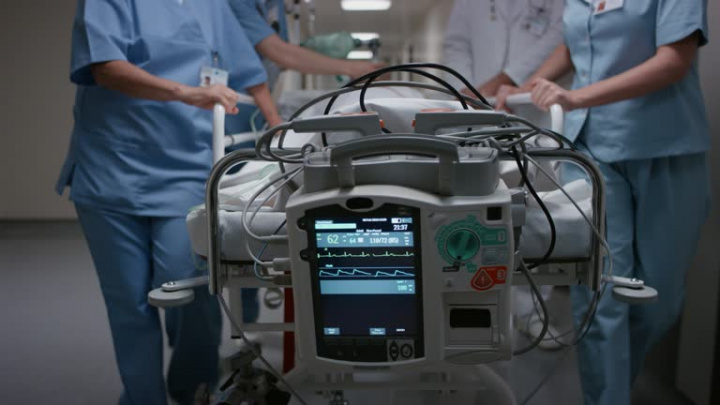Uzbekistan to integrate AI into healthcare, courts, and public services
Uzbekistan has approved a roadmap to implement artificial intelligence (AI) technologies across more than 60 priority projects by the end of 2026. The initiatives will span healthcare, transport, public services, ecology, industry, and the judicial system.
The Cabinet of Ministers issued a resolution on 10 July outlining the country’s strategic directions and sectoral projects for AI integration in state governance and the economy for 2025–2026.
These projects are to be carried out jointly with a range of ministries, agencies, medical and scientific institutions, and private sector actors. The initiatives are grouped into sectors such as healthcare, transport and public safety, aerospace monitoring, ecology, industry, and public services.
Healthcare
AI will be used to improve the quality of healthcare services. In Tashkent’s Almazar and Yunusabad districts, a pilot project will introduce a digital medical assistant powered by AI and a speech-enabled software module integrated into the Unified Medical Information System (DMED). The system will use speech recognition technology to automatically document patient examinations.
AI tools will also be introduced to detect breast cancer early through mammography screenings. A pilot will launch at the Republican Specialized Scientific and Practical Oncology Medical Center and one private clinic.
To assess potential oncology risks in the chest area, a software solution will be piloted to analyze CT scans and X-ray images at the Republican Specialized Scientific and Practical Center of Phthisiology and Pulmonology.
Additional projects include developing an AI system to forecast pharmaceutical market demand and creating a clinical decision-support digital assistant based on AI.
Judiciary
A legal assistance module will be developed to help citizens calculate court costs and receive basic legal guidance.
A platform will also be built to analyze regulatory documents for citizens, lawyers, judges, and attorneys. It will include a system for courtroom transcription in Uzbek with speaker diarization (separating voices).
Aerospace monitoring
AI will be deployed for crop yield assessment and vegetation analysis on pastures through aerospace monitoring in selected pilot areas.
Other applications include monitoring power transmission lines, identifying optimal locations for solar panels, and detecting unauthorized land use and construction.
Transport, logistics, and public safety
A facial recognition system called UzFace will be piloted at Tashkent’s railway stations to verify passengers' identities. AI will also be used to monitor the condition of railway tracks and road surfaces.
Based on international best practices, Uzbekistan plans to introduce an AI-powered hazard warning system.
Other AI applications planned include:
- A model to enhance satellite image accuracy
- Monitoring systems for public and freight drivers (e.g. drowsiness, phone use)
- Computer vision tools to detect minor offenses such as smoking or jaywalking
- AI systems to automatically identify traffic violations committed by electric scooter riders
- Modules for calculating legal expenses and assisting citizens with legal queries
- An AI-powered system to draft court decisions automatically
- A legal document analysis platform for use by citizens and legal professionals
- Enhancements to UzFace to detect illegal littering
- Human identification via clothing, hair color, or carried items using computer vision
Ecology, industry, services, and other areas
UzFace will also be used to detect illegal disposal of household waste using surveillance cameras. Additionally, a digital system will be developed to identify minor violations (e.g. smoking in public or jaywalking), with the offender’s identity confirmed via AI.
Traffic safety violations involving electric scooters will be logged automatically.
Other projects include:
- An AI-based software solution to detect irregularities in public procurement
- Automated verification of supplier bank accounts during government spending
- Detection of changes at mineral resource sites using radar satellite data and AI
- AI-based meeting transcription with speaker identification in Uzbek
- Creation of an Uzbek language corpus and development of a national language model
- A mobile app featuring sign language interpretation
- A robotic system to assess the accessibility of infrastructure for people with disabilities
- AI-driven weather forecasting based on historical data
- Voice and text chatbots for the government services portal
- Auto-verification and data extraction from uploaded documents on the portal
- Voice robot integration for automating the government call center
- Voice-command functionality for completing online forms on the government portal
- AI training programs for government employees and IT professionals
Additionally, Inha University in Tashkent will receive a high-performance computing cluster equipped with graphics processing units (GPUs) and server hardware for large databases. The Ministry of Digital Technologies is tasked with completing procurement by 1 June 2026.
Related News

14:09 / 19.07.2025
Rules for releasing inmates with severe health conditions to be amended

15:56 / 17.07.2025
Businesses urge government to ease import registration for medical equipment

14:09 / 16.07.2025
Uzbekistan losing up to $4.5 billion annually due to data localization law — Analysis

16:03 / 15.07.2025



